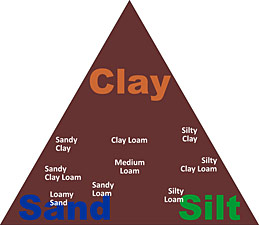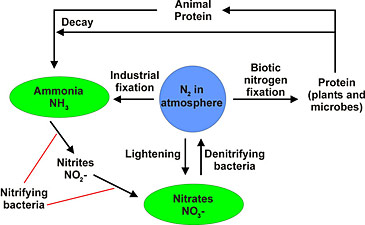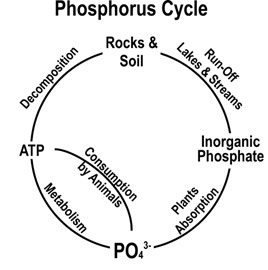 |
The amount of soil that is fertile enough for growing crops is now only one quarter of the earth, which is a very small amount. Good, arable soil is becoming endangered because we like to put houses, commercial buildings, lawns and parking lots on nice flat, well-drained pieces of ground. Additionally, conventional agriculture has overused chemicals to forcibly produce grains, vegetables and fruits. They change the chemical balance of the soil, making it far more acidic than normal. Eventually, the soil loses its fertility.
On Nash's organic farm, we don't use soil—we partner with it to produce crops in a sustainable way. You cannot have too much organic matter in your soil. The soils at Nash's Organic Produce have at least 4.5 to 5%, a relatively high amount for agricultural land, especially compared to soils farmed conventionally (less than 1%!).
 Plants pull nutrients and minerals out of the soil as they grow. Maintaining soil fertility is an ongoing challenge for organic farmers who must actively manage soil health to prevent nutrient depletion and help the plants fight pests and diseases. The crew at Nash's works hard to amend the soil and maintain its health and vitality without using the unsustainable "quick fixes," such as chemical fertilizers to boost fertility. Soil fertility is critical to growing delicious, vibrant veggies, so the quality of the farm's products depends on the health of its soil. Plants pull nutrients and minerals out of the soil as they grow. Maintaining soil fertility is an ongoing challenge for organic farmers who must actively manage soil health to prevent nutrient depletion and help the plants fight pests and diseases. The crew at Nash's works hard to amend the soil and maintain its health and vitality without using the unsustainable "quick fixes," such as chemical fertilizers to boost fertility. Soil fertility is critical to growing delicious, vibrant veggies, so the quality of the farm's products depends on the health of its soil.
The three main elements required for good soil health are Nitrogen (N), Phosphorus (P), and Potassium (K). Other important elements are Calcium, Magnesium, Iron, Boron, Manganese, Sodium, Copper and Zinc. There are many other trace minerals, as well.
Nitrogen (N)
All life needs Nitrogen. It is involved in the formation of proteins and nucleic acids, and is actually quite plentiful, primarily in the atmosphere. But atmospheric N is not in a form that plants and animals can use. It has to be broken apart, or "fixed," by three processes:
 |
* Lightening fixes about 5-8% of total atmospheric N. |
| * Microbes fix N through naturally occurring processes,such as decomposition. |
| * Industry fixes N using lots of natural gas, high temperatures, and pressure, and adds it to chemical fertilizers. |
Organic agriculture gets its fixed N from natural microbial processes. Nash's farm gets it from the decay of plant and animal matter in compost, or from certain bacteria that work in symbiosis with legumes. Cover cropping with legumes, vetches, clovers, etc. supplies lots of fixed N, usually as ammonia, which is taken up by the plants and converted into protein.
Phosphorus (P)
Phosphorus is mined from ancient marine deposits, and is fairly widely distributed in the world. Insufficient P in the soil will slow the breakdown of carbohydrates. Photosynthesis will continue, but the buildup of carbohydrates will eventually kill the plant.
Farmers, including organic farmers, add rock phosphate to their soil if it is deficient. Nash's farm also uses buckwheat, an important cover crop known for its ability to act as a phosphorus scavenger. Its abundant fine roots produce mild acids that act upon the minerals in the soil, such as rock phosphate, and allow the buckwheat plant to take up P. When the buckwheat is turned into the soil, the P is released for succeeding crops.
Potassium (K)
Potassium is found in commercial fertilizers as potassium carbonate, but easy sources of K are becoming relatively rare. It can be mined from ancient sea-bed deposits, in a form called Potash. K enhances water retention in plants, increases overall plant growth and crop yield, and enables plants to resist diseases.
At Nash's Organic Produce, the irrigation water that comes from the Dungeness River carries its own K, and abundant supplies are already present in the soils around the River. K is also found in wood chips and the basis of the compost operation at Nash's is wood chips for that very reason.
Conventional growers apply lots of NPK to their soils as chemical fertilizers to force growth and increase yield. They burn the organic matter in the soil and make it hard, like cement. Good soil is complex and requires many other minerals for healthy plant growth, such as calcium, zinc, iron, manganese, magnesium and selenium.
|





